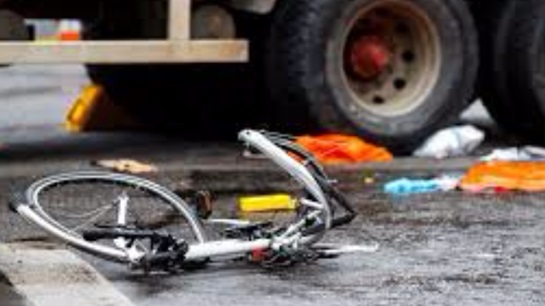 18-02-2021
18-02-2021
More than 3/4 households see income fall after auto accident

 Insurance Alertss
Insurance AlertssMore than 3/4 households see income fall after auto accident
More than 75% of poor households in India reported a decline in their income as a result of a road traffic crash. The financial loss for the poor amounted to more than seven month's household income, while it was equivalent to less than one month's household income for rich households, says a new World Bank report.
Titled “Traffic Crash Injuries and Disabilities: The Burden on Indian Society”, the report sheds light on the links between road crashes, poverty, inequality, and vulnerable road users in India. The study was done in collaboration with SaveLIFE Foundation – a national non-governmental organisation focused on road safety.
The survey shows that the income decline for low-income rural households (56%) was the most severe compared to low-income urban (29.5%) and high-income rural households (39.5%).
Impact on women
Women bore the burden of crashes across poor and rich households, often taking up extra work, assuming greater responsibilities, and performing caregiving activities after a crash. About 50% of women were severely affected by the decline in their household income after a crash. About 40% of women reported a change in their working patterns post-crash, while around 11% reported taking up extra work to deal with the financial crisis.
Truck drivers and insurance
The study also documented low rates of access to insurance coverage and poor awareness related to legal compensation among truck drivers. Two-thirds of truck drivers interviewed for the survey were not aware of third-party liability insurance. None of the drivers had applied for or benefitted from cashless treatment at hospitals, Solatium Fund for hit-and-run cases or exgratia schemes.
In addition to the financial losses, the report highlights the social impact of road traffic injuries. About 64% of low-income households reported a deterioration in their standard of living (more than twice reported by high-income households), while more than 50% reported mental depression post-crash.
Recommendations
The report recommends making health infrastructure and coverage more accessible and inclusive; providing social security net for crash victims from low-income households through state support; creating an accessible legal framework for availing insurance and compensation for road crash victims; recognising the gender impact of road crashes and addressing it through participative governance and special schemes for women; and strengthening post-crash support for children and young adults through state support.
Responses
“We have taken a number of positive initiatives to reduce road crash deaths in India. With the support of all stakeholders in our society, I am committed to reducing road crash deaths by 50% by 2025,” said Nitin Gadkari, Minister for Road Transport & Highways and the Minister of Micro, Small and Medium Enterprise on the release of the report.
“I urge all state governments to effectively implement the Motor Vehicles (Amendment) Act, 2019 and work together to mitigate the effects of road crashes on poor and disadvantaged sections of the population,” he added.
Mr Hartwig Schafer, World Bank vice president for the South Asia region, said, “The World Bank is committed to supporting the Indian government in creating safety nets for poor households to ease their financial burden and help them cope with the sudden emergency linked to road crashes.”
Scope
The study interviewed around 2,500 respondents, including 1,647 respondents from low-income households, 432 from high-income households and 420 truck drivers in four selected states (Uttar Pradesh and Bihar representing low-capacity states and Tamil Nadu and Maharashtra representing high-capacity states) across urban and rural areas.
Source: Asia Insurance Review
